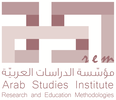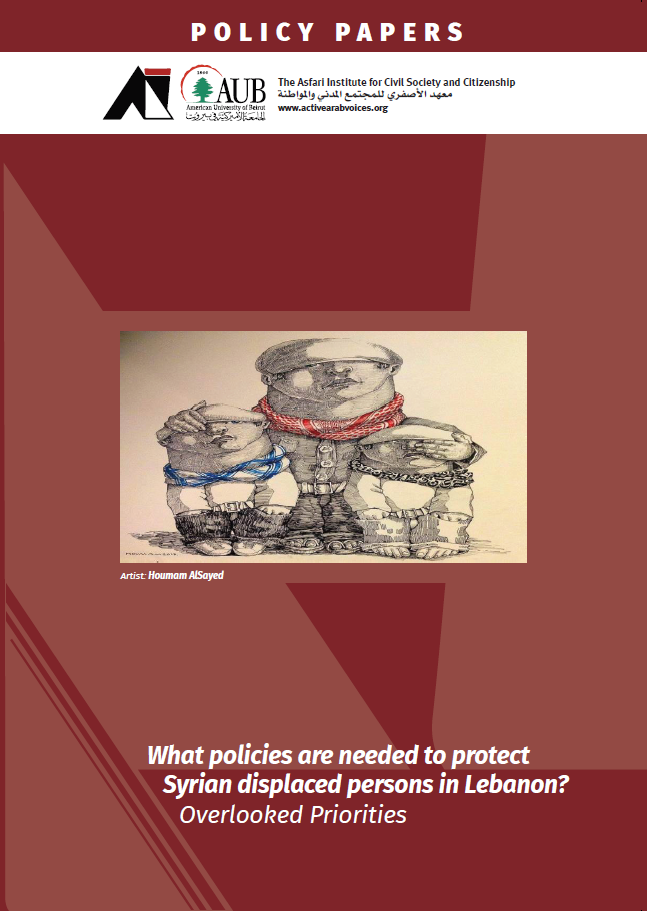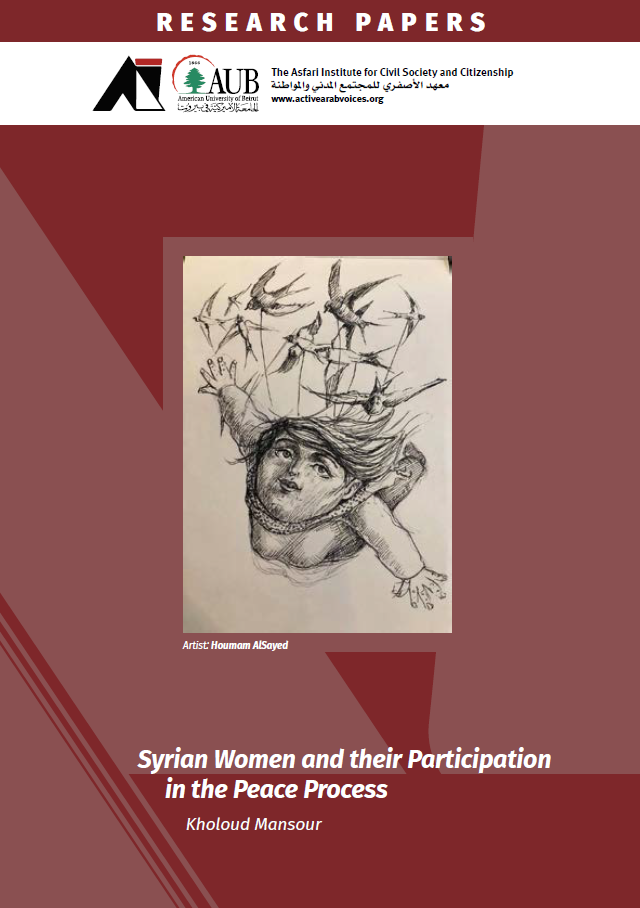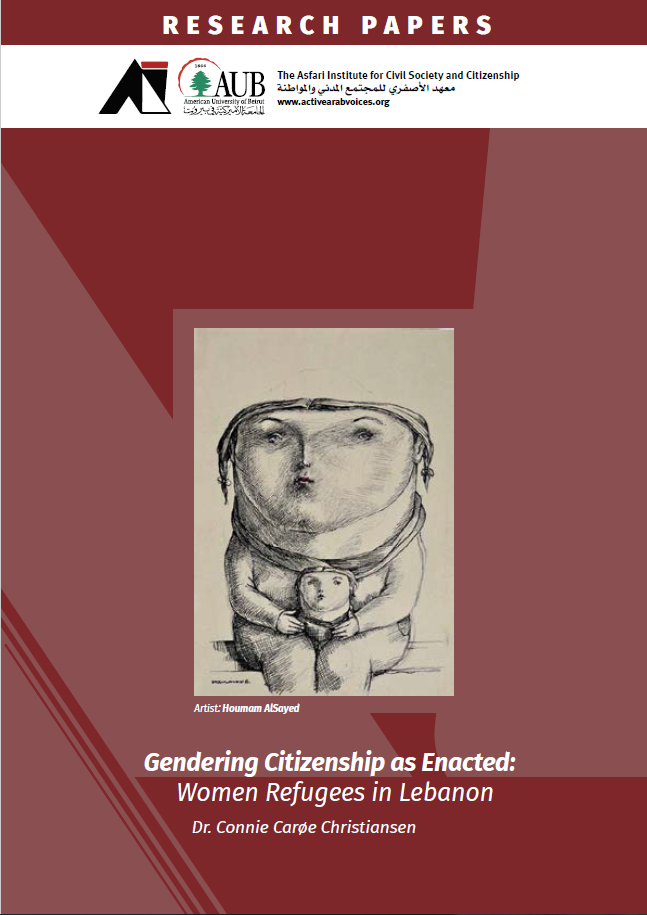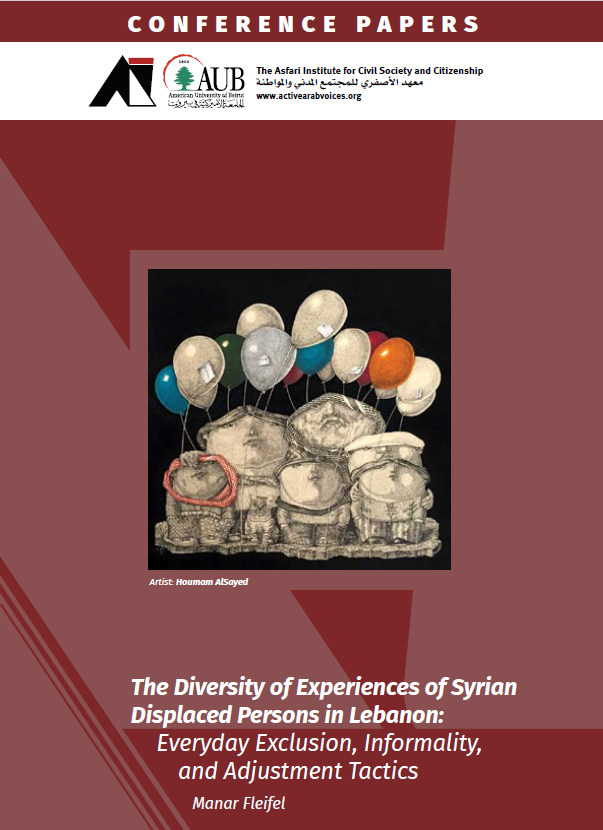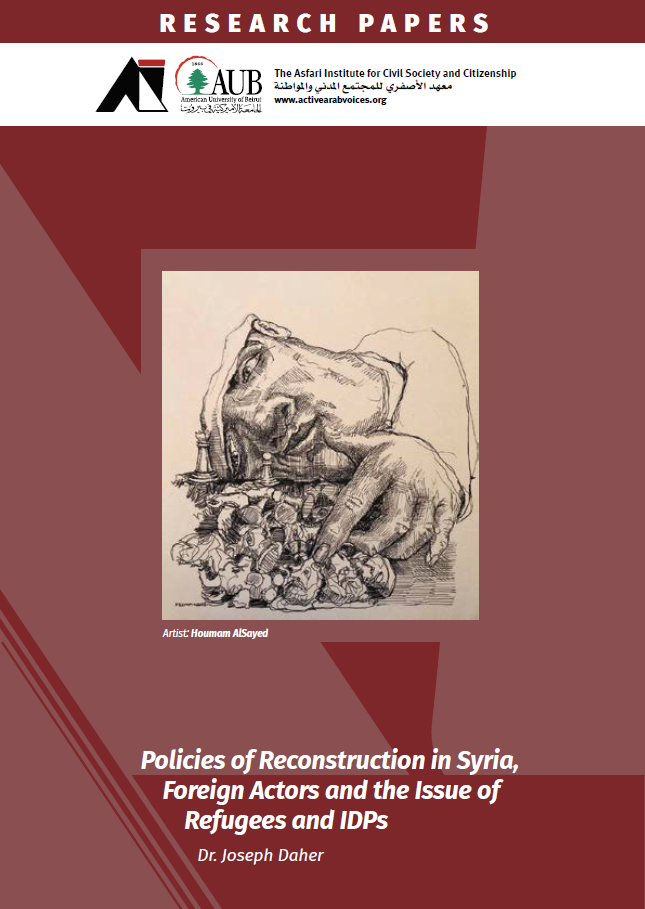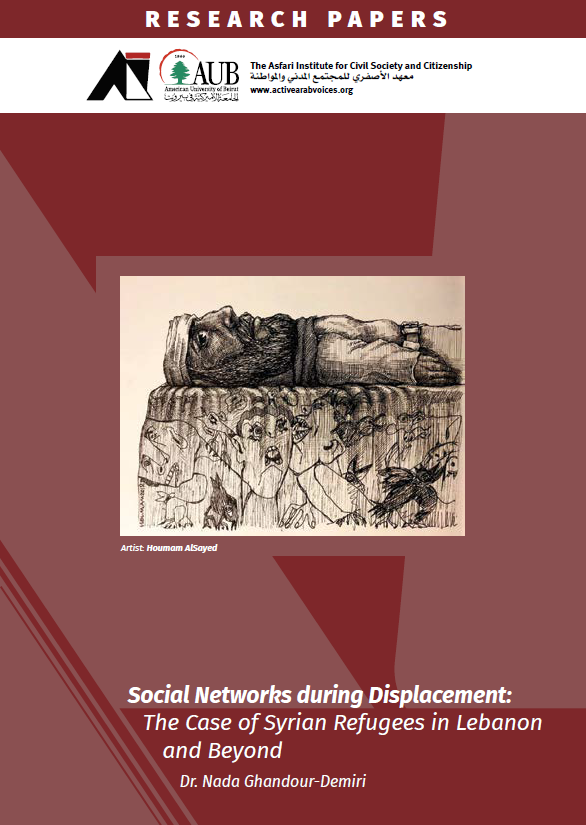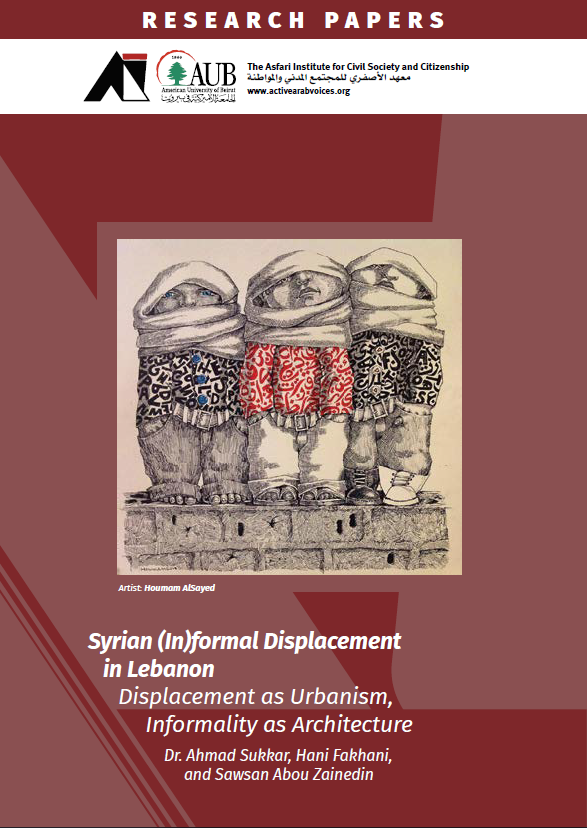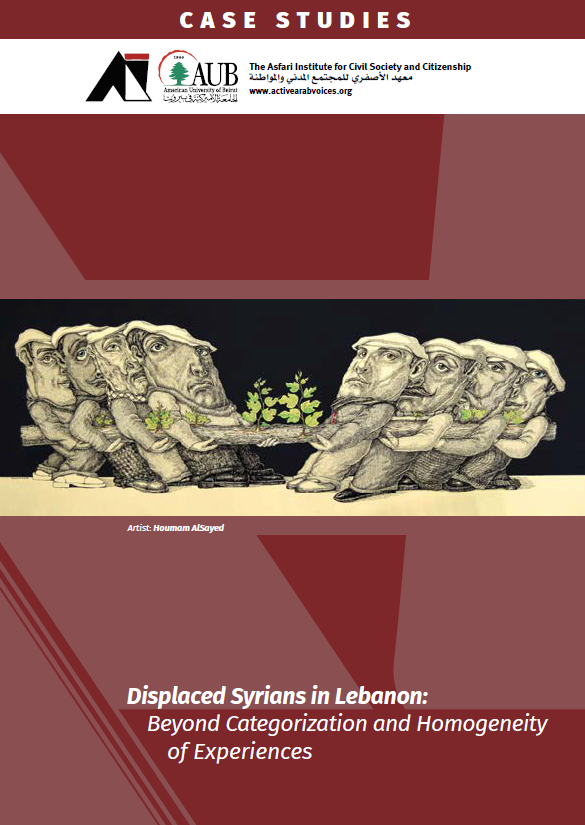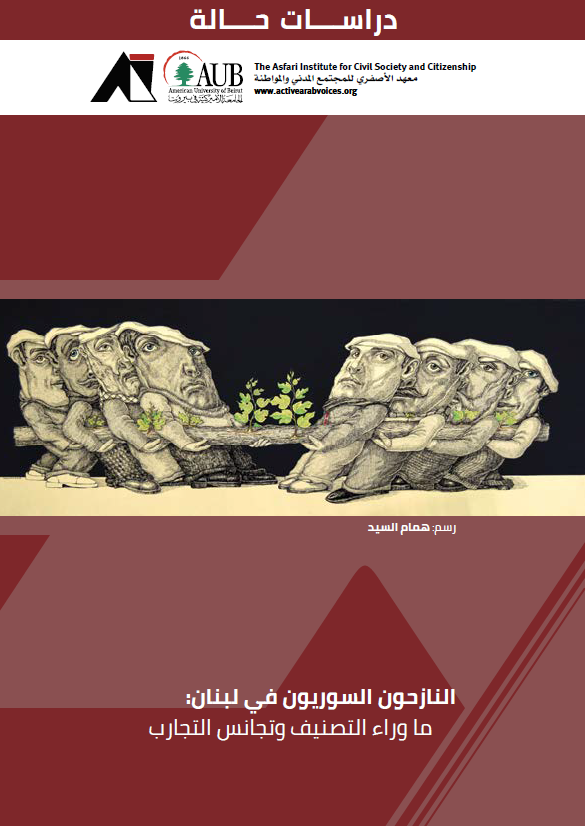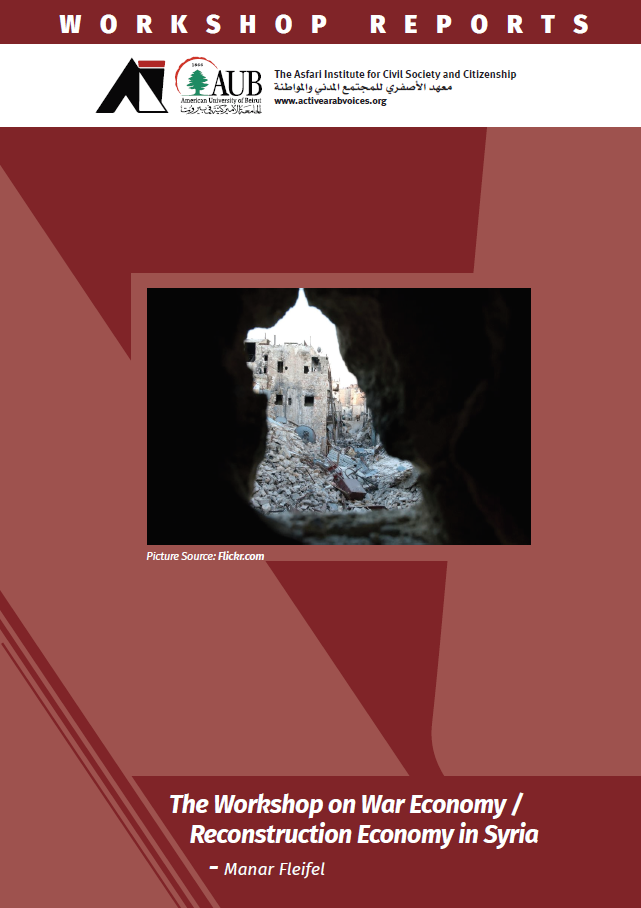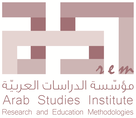- Home
- Regional Storytelling
- Student Projects
- Women of Afghanistan
- Co-ed Thesis Page
- Women's Day
- Podcasts
- Lectures
- Op-Eds
- 16 Days of Activism
- Beirut's Anger and Solidarity
- Citizens' Initiatives
- Lebanon Protests
- Hassan Abbas Memorial
- Research Papers
- Events
- Hotspots
- Spotlight
- Art Competition
- WE ARE READING
The Lay of the Land: A Social Mapping of the Daily Practices in Informality Amongst Syrian Displaced Communities in Lebanon
You can also access our other publications below
What policies are needed to protect Syrian displaced persons in Lebanon?
Overlooked Priorities
ما هي السياسات اللازمة لحماية النازحين السوريين في لبنان؟
أوليات مهملة
An important finding of this report is the “policy of no policy” that the Lebanese authorities use as their approach regarding this matter. Accordingly, local authorities, employers, and organizations backed by international entities deal with the displaced daily. Therefore, the publication of this Policy Report highlights the “policy of no policy” concerning the various sectors that involve Syrians in Lebanon, including construction, hospitality, and retail. The report also draws attention to the patterns around the provision of financial, health, and legal support to Syrian women, and the crumbling infrastructure erected by international aid organizations
قررنا انتاج هذا الإصدار السياساتي لإبراز «اللاسياسة كسياسة » في ما يتعلق بقطاعات الأعمال المختلفة التي تضم نازحين سوريين في لبنان، مثل عمال البناء والعاملين في المطاعم والمحلات التجارية، وكذلك تسليط الضوء على أنماط تقديم الدعم المالي والصحي والقانوني للنساء السوريات، أو في ما يتعلق بانهيار البنى التحتية التي أقامتها وكالات التنمية والمساعدة الدولية دون محاولة من السلطات اللبنانية للإبقاء عليها وإدارتها بشكل كُفْءُ أو تسلمها وتطوير إدارتها بشكل رسمي
Syrian Women and their Participation
|
Gendering Citizenship as Enacted:
|
The Diversity of Experiences of Syrian Displaced Persons in Lebanon:
|
Policies of Reconstruction in Syria, Foreign Actors and the Issue of
|
Social Networks during Displacement:
|
Syrian (In)formal Displacement
|
Displaced Syrians in Lebanon:
Beyond Categorization and Homogeneity of Experiences
النازحون السوريون في لبنان: ما وراء التصنيف وتجانس التجارب
Based on more than one hundred and thirty ethnographic interviews conducted with displaced Syrians living in more than seven different localities in Lebanon, this report presents the research that has been ongoing for over two years as summarized in eight case studies that illustrate the different ways through which Syrians are accessing services and overcoming restrictive policies and procedures, like informal networks among other creative adjustment mechanisms they have adopted. The ethnographic study comprises life histories and semi-structured interviews, focusing on themes rather than sites
يبني هذا التقرير على أكثر من 130 مقابلة اثنوجرافية تمّ إجراؤها مع نازحين سوريين في أكثر من منطقة لبنانية، ويقدّم نتائج بحث استمرّ لأكثر من سنتين، تمّ تلخيصها في ثماني دراسات حالة أظهرت مختلف الطرق التي ينتهجها السوريين من أجل الوصول إلى الخدمات عبر الشبكات غير الرسمية وبالتغلب على السياسات والإجراءات التقييدية من خال اعتماد آليات تكيف مبتكرة. وتشمل الدراسة الاثنوجرافية سِير حياة شخصية ومقابات شبه منظمة، تركز على المواضيع عوضًا عن المواق
The Workshop on War Economy /
|
ADDRESS
Address
PO Box 63 Brummana 1204-2010, Maten, Lebanon Tel: +961-70-300308 |
CONTACT
|
